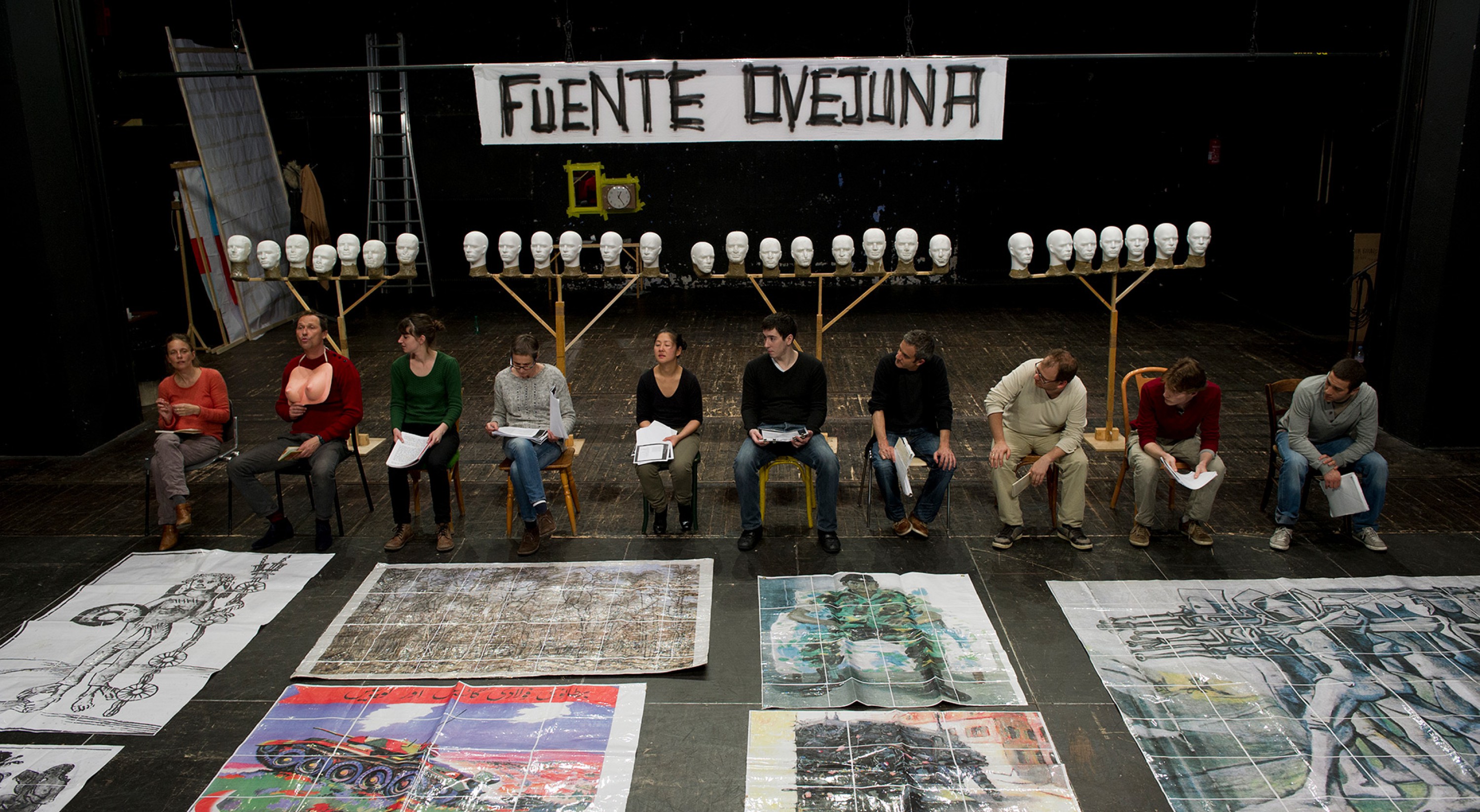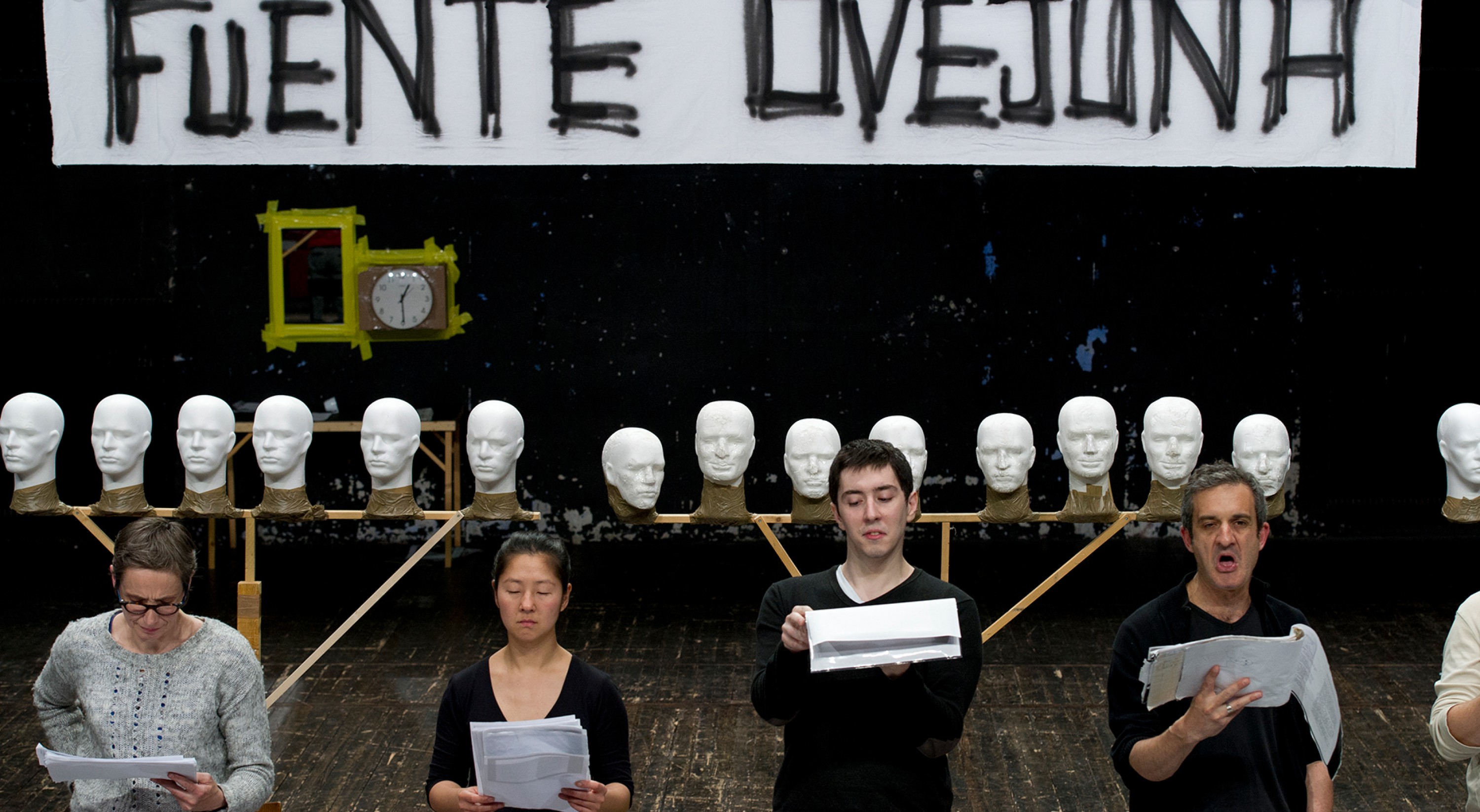Gwenaël Morin
Antiteatre
septembersept 18 - october – oct 18
Antiteatre
from Rainer Werner Fassbinder
4 plays : Anarchie en Bavière, Liberté à Brême, Gouttes dans l’océan, Le Village en flammes
Direction, Gwenaël Morin
Direction Assistant, Elsa Rooke
Avec Renaud Béchet, Mélanie Bourgeois, Virginie Colemyn, Kathleen Dol, Julian Eggerickx, Pierre Germain, François Gorrissen, Barbara Jung, Ulysse Pujo, Natalie Royer, Brahim Tekfa
Production Théâtre du Point du Jour/Compagnie Gwenaël Morin
Corealisation Théâtre de la Bastille (Paris) ; Festival d’Automne à Paris
With the support of DIESE # Rhône-Alpes
Le Théâtre du Point du Jour est conventionné par le ministère de la Culture et de la Communication/DRAC Rhône-Alpes, la région Rhône-Alpes et la Ville de Lyon.
L’Arche is the editor and theatral agent for the text
(www.arche-editeur.com).
With the support of Adami
“Antitheater” encapsulates R.W. Fassbinder’s debunking of all political, psychological and moral standards in late 1960s FRG. In four plays based on Fassbinder’s texts, Gwenaël
Morin traces an “archeology of violence”, as each play evokes a utopia gone wrong. Without using a set or costumes, Gwenaël Morin directly confronts notions of dependency,
emancipation, desire and death.
In the same place


